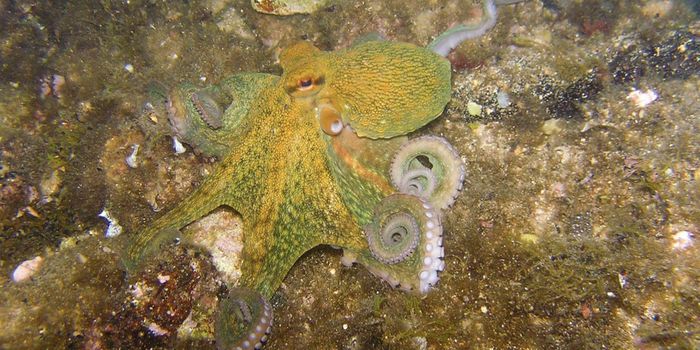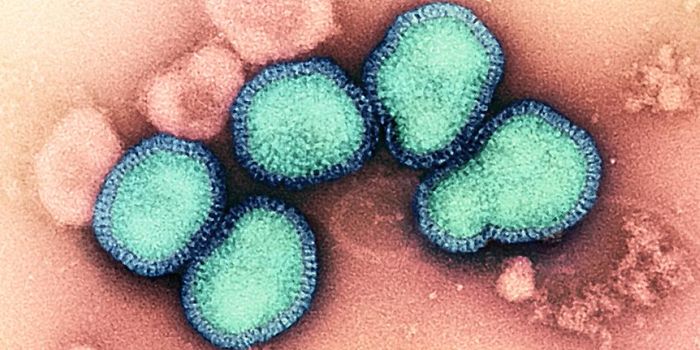New target for treating HCMV
Researchers at the University of Edinburgh’s Roslin Institute identified a host-cell molecule that helps the human cytomegalovirus (HCMV) to replicate.
HCMV is a herpesvirus - it was first described by the German pathologist Hugo Ribbert in 1881. The prefixes cyto (cell) and megalo (large) refer to the fact that infected cells are quite large. HCMV infects around 30% of people in developed countries, but it infects nearly 100% of people in the developing world. While HCMV is relatively harmless to healthy people, the infections can be serious for people who are immunocompromised or have heart disease. It can also cause hearing loss and intellectual disabilities in unborn babies.
HCMV infection is usually associated with the salivary glands, and it can cause mucoepidermoid carcinoma (and possibly prostate cancer). In the immunocompromised, HCMV can cause hepatitis, colitis, pneumonitis, or esophagitis. It’s not entirely clear how HCMV is transmitted from person to person, but transmission likely occurs through body fluids.
The researchers used an siRNA screen to identify host factors that are important for HCMV replication and found that VCP is essential. VCP (valosin-containing protein) is important for ubiquitin-mediated signaling in the host cell; VCP is an ATPase that generates energy to modify its target proteins.
They verified their findings with siRNA that specifically targeted VCP. Primary human fibroblasts were infected with HCMV that produces green fluorescent protein (GFP). When the infected cells expressed siRNA specific for VCP, the viral titers were over 4 logs lower than in control cells, and no viral replication was observed.
VCP is actually targeted by many cancer drugs, so they determined if small-molecule inhibitors of VCP could inhibit HCMV replication. They treated the cells with the VCP inhibitor NMS-873 or DMSO and infected them with HCMV. Like the VCP siRNA, NMS-873 decreased viral gene transcription and protein expression.
Finally, they tested NMS-873 against the antiviral drug Ganciclovir, which is commonly used to treat HCMV. They pretreated fibroblasts with Ganciclovir, NMS-873, or DMSO and then infected them with HCMV. Both Ganciclovir and NMS-873 inhibited viral replication, but NMS-873 was effective at a ten-fold lower concentration than Ganciclovir.
According to study author Finn Grey, “Human Cytomegalovirus infection is an important human disease. By gaining a better understanding of how the virus works, we can develop improved antiviral drugs. While more work is required, this study shows the potential of such approaches."
Sources: PLOS Pathogens, Science Daily, Wikipedia









